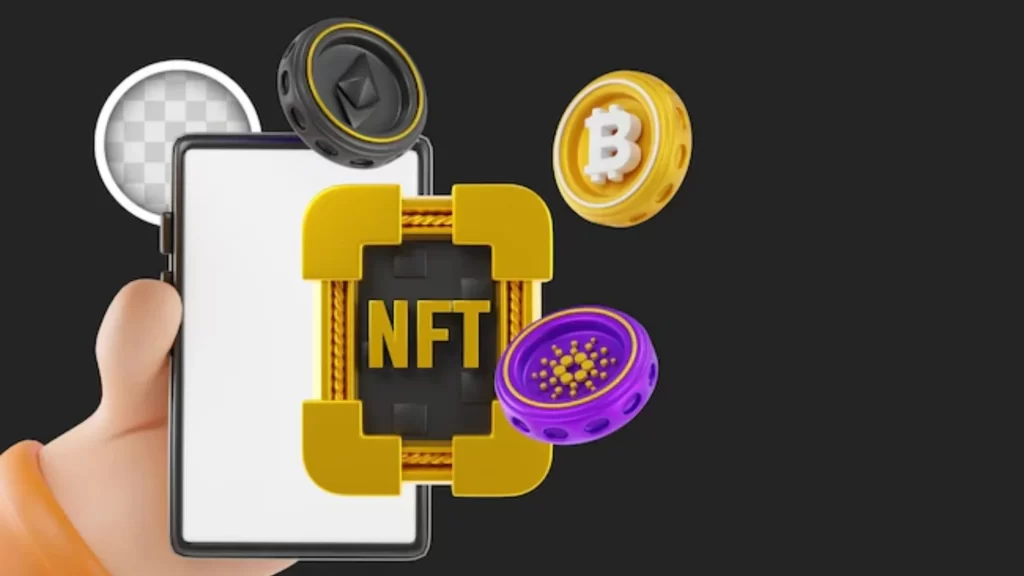
Non-Fungible Tokens (NFTs) have emerged as a groundbreaking technology, revolutionizing the way we perceive and monetize digital assets. While NFTs have gained popularity in the art and collectibles space, they have also caught the attention of top brands across various industries. These brands are leveraging the power of NFTs to not only engage with their audience but also generate substantial profits. In this article, we will explore how top brands are harnessing the potential of NFTs to drive innovation, create unique experiences, and capitalize on this booming market to earn a substantial revenue.
Exclusive Digital Collectibles
Many top brands are releasing limited-edition digital collectibles in the form of NFTs. These collectibles can include virtual trading cards, digital artwork, or even virtual fashion items. By offering exclusive and scarce digital assets, brands create a sense of exclusivity and demand among their fanbase. These NFTs often come with additional benefits such as access to exclusive events, merchandise discounts, or special experiences, adding value for collectors.
Brands like NBA Top Shot, which offers digital basketball highlights as NFTs, have generated millions of dollars in revenue by tapping into the collectible market and catering to fans’ desire to own unique digital assets. If you want to earn millions with the help of NFT, then you should consider taking the help of professionals from a reputable NFT agency.
Virtual Real Estate and Virtual Worlds
Some brands are exploring the potential of NFTs in the realm of virtual real estate and virtual worlds. Companies allow users to purchase virtual land or virtual items as NFTs within their digital environments. Top brands are partnering with these platforms to create branded virtual experiences or launch virtual stores.
By offering limited edition NFTs tied to virtual real estate or virtual items, brands can monetize their digital presence and provide immersive experiences for their audience. This innovative approach allows brands to extend their reach beyond physical spaces and engage with consumers in the ever-expanding metaverse.
Tokenized Intellectual Property
Brands are also leveraging NFTs to tokenize their intellectual property (IP) and unlock new revenue streams. By minting NFTs representing iconic characters, logos, or other brand assets, companies can grant fans ownership or access to unique digital versions of their IP. This creates a new market for collectors who are willing to pay a premium for official and authenticated digital assets.
Additionally, brands can incorporate smart contracts into these NFTs, enabling them to receive royalties or fees every time the NFT is sold or traded on secondary markets. This provides ongoing revenue opportunities and incentivizes brands to create more valuable and desirable NFTs.
Collaborations and Partnerships
Top brands are collaborating with artists, celebrities, and other influencers to create limited-edition NFT collections. By partnering with well-known figures in the NFT space, brands can tap into their existing fanbase and leverage their influence to drive demand for the NFTs. These collaborations not only attract attention but also introduce new audiences to the brand’s products or services.
Furthermore, the scarcity and exclusivity of these collaborations make the NFTs more desirable and potentially more valuable on the secondary market. Brands like Gucci, Nike, and Louis Vuitton have successfully collaborated with artists and designers to release NFT collections, generating significant profits and strengthening their brand image in the digital space. Business owners need to learn how to make and sell NFT art to earn profit.
Enhanced Fan Engagement and Brand Loyalty
NFTs offer brands a unique opportunity to enhance fan engagement and foster brand loyalty. By offering exclusive access or rewards through NFT ownership, brands can create a sense of belonging and exclusivity among their most devoted fans.
This can include special VIP experiences, early access to products, or even the ability to influence brand decisions. NFTs act as a badge of loyalty and provide a new way for fans to connect with their favorite brands. This heightened engagement translates into increased customer retention and advocacy, ultimately driving long-term profitability.
Authenticating Limited Edition Products
Top brands are utilizing NFTs as a means to authenticate limited edition products and combat counterfeiting. By linking unique identifiers or serial numbers to NFTs, brands can provide proof of authenticity and ownership for their high-value items. This not only enhances the trust and confidence of consumers but also creates a secondary market for reselling these authenticated products.
NFTs ensure transparency and immutability of ownership records, making it easier for buyers and collectors to verify the legitimacy of their purchases. This adds value to the brand’s products and strengthens its reputation for quality and exclusivity.
Conclusion
Top brands are seizing the potential of NFTs to unlock new revenue streams, engage with their audience, and strengthen their brand positioning in the digital landscape. Through exclusive digital collectibles, virtual real estate, tokenizing intellectual property, collaborations, and enhanced fan engagement, these brands are capitalizing on the growing popularity of NFTs to generate substantial profits.
As NFTs continue to evolve and gain mainstream acceptance, we can expect more innovative use cases from brands across various industries, further shaping the future of digital ownership and monetization.




More Stories
Top 10 Off-Page SEO Factors for Higher Ranking
Unlocking the Power of SEO Video Marketing: Elevate Your Strategy with Dynamic Video Content
10 Essential On-Page SEO Factors You Should Be Aware Of